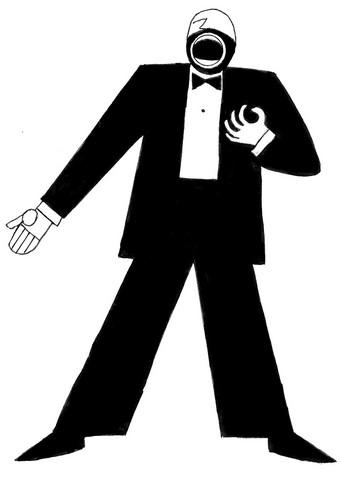BBC!
I’ve really been enjoying listening to British radio stations in my room (when one does not have TV or internet in one’s room, one turns to the radio. I had a similar experience when I lived in Baltimore). Mainly it’s been BBC3 and ClassicFM. Occasionally I’ll put on the talk channel, BBC4. The programming on ClassicFM is kind of like Top 40 classical music, but like an I Pod shuffle. You get a movement of Mahler here, a song there, a sonata movement sometime else. I find the DJs rather enjoyable and witty. BBC3 plays slightly more obscure selections (yesterday was a delicious mass by Ockeghem, today a cantata by Kuhnau [for more on Kuhnau go here]), but isn’t a strictly classical formula, with jazz and world music coming on at night sometimes. I'm amazed at just how much vocal music they play. It's great to hear new repertoire every morning. Both stations have lots of features with performers and it’s also interesting that a lot of British recordings and performers are represented.
I was treated to a fabulous feature on Miles Davis’ Kind of Blue album over the weekend on Radio 3, in which each track of that magnificent album was taken apart musically. A special emphasis was given to the unique solo styles of each soloist on the record. It’s great to hear someone talk about Bill Evans’ love of Impressionism and tone clusters or about Miles Davis’ use of simple modal motives and then to actually hear Evans or Davis play the solo. The feature went into the overall construction of the album and how Miles Davis used specific players for each track in order to create the desired effect. Unfortunately, my copy of Kind of Blue was on tape and is no longer in my possession. Overall, I find the scholarship and high level of the features very good.
Perhaps I’ll begin to venture into the pop stations soon to try to pick up some new (to me) British bands. It seems that a large part of the programming is American music. It’s kind of funny to hear The Black Eyed Peas in a grocery store in England. I feel like we should be listening to Brit Pop all the time!


2 Comments:
You are quite right, the BBC offers many riches (And I use to work for them!)
But there is another side to the story. As I am sure you have read/heard in the UK media this week there is a lot of debate about the annual license fee which is currently £126.50 ($227), and is likely to rise to £180 ($325). There is no choice, you have to pay the license fee. This gives the BBC a guaranteed annual income of nearly £3 billion ($5.5 billion) a year.
This income gives the BBC enormou power. It has complete control, including broadcasts, public performances, touring, and programmes, of five leading orchestras, plus the BBC Singers. They also have total control over the world's largest music festival, the BBC Promenade Concerts. This employs musicians ranging from the Berlin Philharmonic to Ravi Shankar.
The BBC has one of the largest commissioning budgets for new music, with an annual spend in excess of £350,000 ($630,000). This commissioning budget is larger than the turnover of many independent record companies. It is quite wonderful that the BBC is able to fund the creation of so much new music, and this year's new music feast at the Proms is an excellent example of money very well spent. But conversely, misuse of their commissioning budget and programming authority can stifle new talent. This allegedly happened to tonal composer Robert Simpson, and others, in the 1970's under the regime of progressive Director of Music William Glock and modernist Principal Conductor of the BBC Symphony Orchestra Pierre Boulez.
The license fee system makes for some wonderful broadcasting, but it can also be abused. The perennial debate is does the BBC represent value for money? And the jury still seems to be out on that one.
Thanks so much for the insightful comment, Pliable. I didn't know the inner workings of the BBC, I just like the programming! It's an interesting contrast from NPR in the U.S., which is partially federally funded and relies on member support to fund local stations. NPR has been hanging by a thread for a long time and the conservative agenda is convinced NPR is liberally biased. They've even appointed conservative watchdogs to monitor programming. It's true some of NPR's programming is a bit liberal, but in general it's thoughtful, intelligent reporting that is not afraid to question both sides. If only NPR had the BBC's budget!
Post a Comment
<< Home